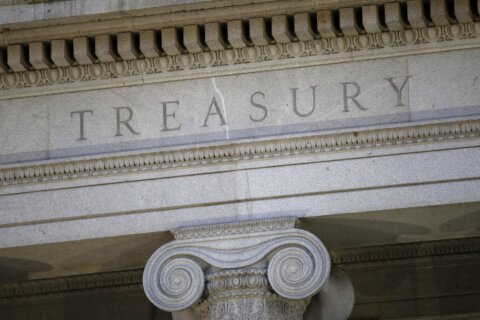Last month, Washington, D.C., became the latest municipality in which most consumer-facing businesses must accept cash as payment.
The law, which went into effect October 1, 2023, represents a growing backlash by cities across the country against businesses that want to accept noncash payments only, such as credit card and digital payments. Philadelphia and New York City have similar rules in place, and Los Angeles is considering a similar measure.
Are Cashless Businesses Discriminatory?
Advocates of such bans claim that cashless businesses discriminate against unbanked and underbanked consumers, which tend to be low-income and minority populations.
“I support the bans on cashless businesses,” says Felix Shipkevich, a New York-based payments attorney. “I think it’s ridiculous that we, as a society, would even have to think about legislation that would require businesses to accept legal tender, which is accepted by our government for payment of taxes, of all debts, and for goods and services.”
In addition to being discriminatory, Shipkevich says there are other factors that make it impractical for businesses to refuse cash payments. If a natural disaster occurred, for example, Shipkevich says cash may be the only way for consumers to pay for items if power went out for an extended period of time.
[READ: How Much Cash Should I Keep on Hand?]
Many Have Barriers to Banks
Shipkevich says that trends in the banking industry that have led many small and medium-size banks and credit unions to close their doors have made it even harder for some consumers to open bank accounts in recent years. Research from the Federal Deposit Insurance Corporation (FDIC) shows that about one in 20 Washington, D.C. residents does not have a bank account.
“People forget that when you make a cashless payment, you’re basically asking your bank to pay for you,” says Bill Maurer, who studies payments at the University of California, Irvine. “If you don’t have a bank, that’s really hard. That’s the barrier.”
In addition to disproportionately affecting people of color, cashless businesses make life more difficult for recent immigrants and refugees who may not yet have an American bank account, Maurer says.
“It impacts the elderly, who often just don’t have the technical capabilities, or quite literally, the nimbleness to use their phones as a means of payment,” he adds. “Noncash means of payments are also not great for people with certain disabilities.”
There are several other populations who might prefer cash payments for other reasons, Maurer says. Those worried about privacy or security may want to pay in cash to limit the amount of data collected on them. Meanwhile, folks who have trouble sticking to a budget may opt for cash payments since it can be easier to track spending that way.
[Read: How to Make a Budget — and Stick to It.]
The Retail Perspective
On the other hand, retailers who want to go cashless see the move as a way to increase efficiency and lower costs. They say that eliminating cash is a crime-prevention tactic and that it speeds up transactions and streamlines recordkeeping.
Meanwhile, consumers continue to move away from cash as their preferred method of payment. The shift accelerated during the pandemic, with fewer than 20% of all payments now involving cash, according to Federal Reserve data. Still, most retailers — even in locales without cashless bans — continue to accept cash payments.
“Virtually all of our members take cash in their outlets,” says David French, senior vice president of government relations for the National Retail Federation. “I think these bans are being put in place to anticipate a future where cash is not as prevalent a form of payment and trying to leapfrog to the point where fewer people are using cash.”
Many retailers prefer cash payments, French adds, because they don’t have to pay credit card interchange fees.
“In our experience, almost all retailers take cash and will certainly do what their customers want them to do,” he says. “I think this is a solution in search of a problem.”
More from U.S. News
Simple and Free Budgeting Tools
Best Budget Apps for Couples in 2024
Mint Is Shutting Down: Here Are the 5 Best Free Budgeting Apps to Use Instead
D.C. Is Now Enforcing Its Cashless Business Ban: What That Could Mean for You originally appeared on usnews.com







